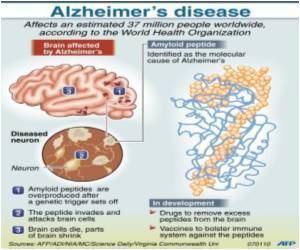Combined nutrients called NT-020 made from blueberries, green tea, and amino acids, such as carnosine,successfully promoted adult neural stem cell proliferation

They tested two groups of aged laboratory rats; one group received NT-020 and another, the control group, did not.
In the NT-020 group, the process by which neurons are generated-called neurogenesis- increased.
The NT-020 formula was patented by USF and licensed to Natura Therapeutics, Inc.
"Aging has been linked to oxidative stress, and we have previously shown that natural compounds made from blueberries, green tea, and amino acids, such as carnosine, are high in antioxidants and have anti-inflammatory and anti-oxidative activity. The combination of these nutrients, called NT-020, creates a synergistic effect that promotes the proliferation of stem cells in the aged animals," said Dr. Sandra Acosta, the study's lead author.
The NT-020 group demonstrated increased adult neural stem cell proliferation in the two main stem cell niches in the brains and improvement in learning and memory.
Advertisement
NT-020 has also been shown to encourage the proliferation of adult stem cells, which have the potential to develop into tissue and bone cells and also migrate to areas of damage to help with repair.
Advertisement
They found that NT-020 treated animals had fewer activated inflammatory cells in the brain, reflecting a decrease in factors that reduced the production of stem cells.
"NT-020 may have not only a positive effect on the stem cell niche. NT-020 may have far-reaching effects on organ function beyond the replacement of injured cells, as demonstrated by cognitive improvement in the NT-020 group," concluded Bickford.
The study was published in the current issue of Rejuvenation Research.
Source-ANI














